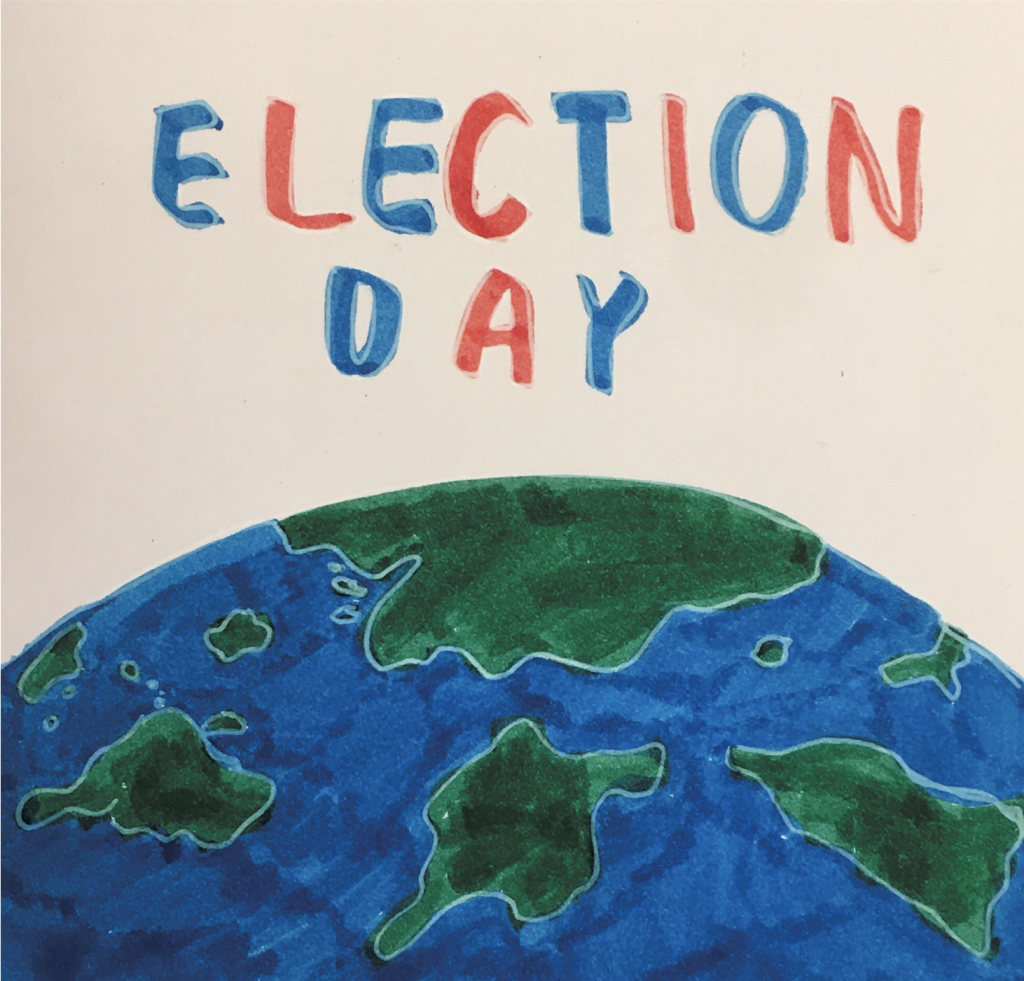Election Day has crept up on every American over the past few weeks; this means constant squabbles with friends and family, a myriad of articles and information online meant to dissuade voters, and an overwhelming sense of pride and importance that comes from being American. Under normal circumstances, residents in Ridgewood that are at least 18 years old go to local polls and cast their votes for the president, senators, governors, mayors, and other government positions. COVID-19 has undoubtedly changed the way Americans vote; American citizens are encouraged to mail their ballots, and if they choose to vote in person they will be met with strict requirements on how many people are allowed to be in the building along with the usual COVID-19 guidelines.
Although most Americans are familiar with how elections are run in America, Americans know very little about elections in other countries. Compared with nations across the globe, American elections are very unique; for starters, of the 36 nations that are a part of the OECD (Organisation for Economic Co-operation and Development), an organization comprised of the the most powerful nations in the world that vies for equality and equal opportunities, America is one of nine nations that has election day on a weekday; most countries have election day on Sunday. America is also one of seven nations in the OECD that does not designate election day as a national holiday.
Additionally, some countries also make voting mandatory. For example, all citizens eligible to vote in Australia must do so or else they have to pay a fine. Another way voting is different across the globe is some countries make voting mandatory for some and not for others. An example of this would be Ecuador. Ecuador requires literate citizens ages 18-65 to vote, but those who are illiterate or older than 65 do not have to. These countries see significantly higher turnout rates than America.
Another interesting advancement over the past few years is online voting. Estonia was the first country to try electronic voting, and now Brazil, India, Venezuela, Namibia, and the United Arab Emirates have also adopted electronic voting nationwide.
Although in most countries the minimum voting age is 18, citizens in Brazil as young as 16 have had the right to vote since 1988. Furthermore, citizens in Austria, Nicaragua, and Argentina that are 16 also have the right to vote. In 2014, select states in Germany also gave 16 year olds the ability to vote in local elections. Studies have shown that giving 16 year olds the ability to vote translates to more political involvement in future generations.
Ryan Sullivan
staff writer
Graphic: Hannah Kim

